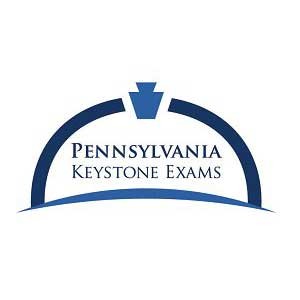Dinniman, school officials say exams are unfair, and an ‘unfunded mandate’ on schools
By Mike McGann, Editor, The Times
 TREDYFFRIN — Although the new Pennsylvania Common Core curriculum appears to be here to stay, one key element of the plan, the requirement of high school seniors to pass Keystone Exams in Algebra, Biology and Literature in order to graduate starting in 2017 are increasingly under fire, as a state Senate Education Committee hearing revealed Monday.
TREDYFFRIN — Although the new Pennsylvania Common Core curriculum appears to be here to stay, one key element of the plan, the requirement of high school seniors to pass Keystone Exams in Algebra, Biology and Literature in order to graduate starting in 2017 are increasingly under fire, as a state Senate Education Committee hearing revealed Monday.
On a day where Gov. Tom Corbett asked for and received the resignation of acting Education Secretary William Harner, his replacement, the newly appointed acting Secretary of Education, Carolyn Dumaresq found herself sparring with state Sen. Andrew Dinniman over the exams and a 2009 deal that would have had the exams count as part of a class grade, but not be a barrier to graduation.
Most of the testimony during the lengthy hearing at Valley Forge Middle School — the proceedings ultimately ran about two hours longer than scheduled — detailed opposition to using the Keystone Exams as a condition of graduation, citing expense, poor communication by the Pennsylvania Department of Education (PDE), lack of funding, and forcing a “one size fits all” approach to education. The meeting was chaired by Senate Education Committee Majority Chair Mike Folmer (R-48), who represents parts of Berks, Chester, Dauphin and Lancaster counties.
Dinniman (D-19), the minority chairman of the committee — who argues that Corbett and former Education Secretary Ron Tomalis broke an earlier compromise deal on the exams, unilaterally changing them to a graduation requirement in January — made clear that while he and the rest of the Democratic Senate caucus oppose the use of Keystone Exams as a graduation requirement, they do not oppose the Pennsylvania Common Core.
“But we oppose the notion that we engage in a charade,” Dinniman said. “We can’t raise standards without providing schools the resources to do it.”
Dinniman also criticized PDE officials for failing to provide the committee the test scores from the Keystone — at least statewide numbers — to allow the committee to get a sense of the costs for school districts on remediation — the process to help students pass the tests. Dumaresq, though, noted her department is working to generate the numbers, which like the previously administered PSSA, typically have results available in September.
Multiple witnesses testified as to problems with the cost of not just making the test a requirement but the cost of up to three rounds of remediation for students who fail to pass, although students can ultimately substitute project work or other work to prove knowledge of the material under PDE guidelines.
An example of the problematic nature of the graduation requirement was cited by Tracey Karwoski, vice president of the Garnet Valley Board of Education. She detailed the travails of her daughter Megan, an honor student who struggles with standardized tests. Despite a grade point average of 3.987, she failed the Algebra I Keystone twice, spent time in a special remediation course this summer and is waiting for the results of the latest test.
“It’s painful to hear a student ask, ‘am I stupid?’ Tracey Karwoski said of the pain her daughter has been forced to go through because of the Keystone Exams.
Dr. Joseph O’Brien, Executive Director of the Chester County Intermediate Unit, said from his conversations that a “vast majority of the school superintendents in the county oppose” having the Keystone Exams be a graduation requirement.
Officials from the Tredyffrin/Easttown School District, the hosts for the hearing, echoed those sentiments, citing the district’s excellent academic performance — the district’s Contestoga High School is regularly among the top-rated high schools in the state — but also because of the financial ramifications of paying for the remediation.
“We’ve faced considerable financial stress,” said Karen Cruickshank, a member of T/E Board of Education. “We’ve faced multi-million dollar deficits and we don’t need another unfunded mandate.”
Dinniman said he sympathized — arguing that the best thing the PDE could with high-performing school districts such as T/E was to largely leave them alone.
“What in God’s name does the state or federal government want a district like T/E to do,” Dinniman said. “With another unfunded mandate, it almost makes me want to become a Republican or a Libertarian.”
Some local superintendents were less outspoken than O’Brien and Cruicjshank, but expressed concerns about the Keystone Exams.
“We do not shy away from the time honored tradition of testing students on what is taught in order to measure achievement,” Unionville-Chadds Ford Superintendent of Schools John Sanville said, when contacted Monday. “My hope is that the Pennsylvania Department of Education will fully vet and research the Keystone Exams to ensure that the assessment is both a reliable and valid measure of student achievement — there is too much at stake not to do so.”
Requests seeking comment on the issue from Kennett Consolidated School District Superintendent of Schools Barry Tomasetti and Coatesville Area School District Superintendent of Schools Richard Como were not answered.
But, Dumaresq said, it was initially input from the state’s school superintendents that led to PDE removing the Keystone Exams from being part of the class grade.
“We heard back from several school districts that they didn’t want the Keystone Exam to be part of the academic program,” she said, noting that only in recent days has there been much in the way of negative comment from districts about the graduation requirement.
She also noted that other options, including Advanced Placement exams, can be used, as well as other tests, as well as projects, for students to be granted status for graduation. In addition, up to 10% of a class can be granted waivers, and special education students would only be required to take and pass the test if their Individualized Education Plan (IEP) calls for it.
“We’ve really tried to build in a lot of flexibility,” she said.
The state Senate Education Committee plans another hearing, this time on the Pennsylvania Common Core Curriculum, Thursday, in Harrisburg.







It was too far to go to attend this meeting. I did watch the video at:
http://www.pasenategop.com/committees/education/2013/082613/agenda.htm
Long but interesting to watch. I hope they stop the tests going toward graduation. They aren’t needed. Glad my new Senator-Andy Dinniman is on the right track with this.
Kudos to Dr. Sanville for his measured response. Standardized testing isn’t the end-all-be-all, but it provides one metric of measuring success. There needs to be an objective assessment of what our students are learning.